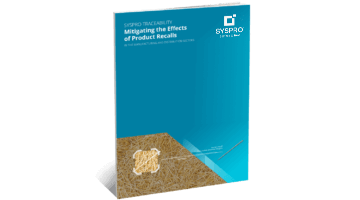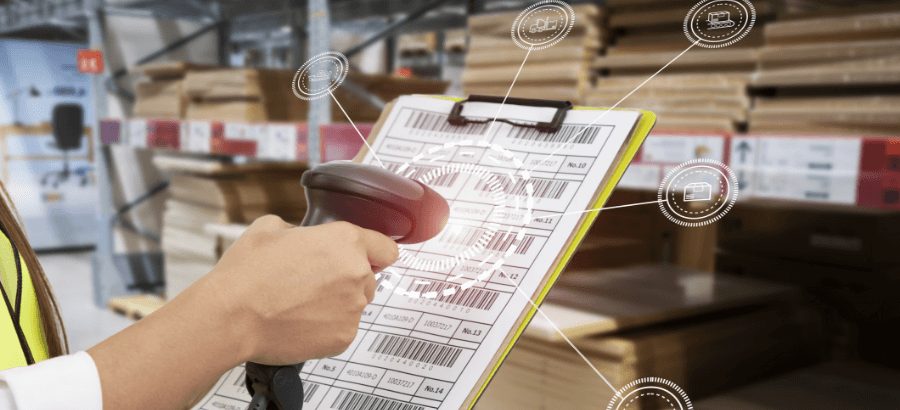When it comes to food and beverages, wealthier segments of the consumer market today are more health-conscious than ever about what they choose to consume, and what effects their choices have on the planet. Their purchases are often strongly determined by nutritional value, packaging, and shelf-life. They want to know what is in the food they buy, plus its “heritage”, which creates an increased demand for transparency in product labelling and food safety.
The food and beverage industry is the most important player in South Africa’s manufacturing industry, contributing approximately R85 billion a year to South Africa’s manufacturing sector. With increased regulations around quality and traceability, plus consumer buying habit changes during the pandemic, innovation is now critical for survival in the food and beverage industry. Also, with changing consumer demands, and economic reliance on the industry, food and beverage companies clearly require improved efficiency in the business and throughout the supply chain to survive and thrive.
Having an ERP system that is relevant for the needs of food manufacturers ensures that factors like material requirements planning, inventory management, recipe, and batch control, plus traceability, all function effectively.
Traceability and product recalls
Why is traceability so important when it comes to preventing food safety issues and executing product recalls when incidents do occur? Without knowing which materials came from which suppliers, what batches were mixed together, how and where they were processed and packaged, and finally who you sold them to, you can’t know what they may have come into contact with. You won’t be able to judge the risk for contamination, nor will you be able to find the source of the contamination and where it spread to, should it be identified in your facilities or further downstream.
Food contamination is a constant threat when you deal with perishable products. Just last year, Coca-Cola South Africa, which manufactures Appletiser, said quality testing revealed that the products were “outside of the acceptable standards,” and six batches of the product were recalled from retailers within South Africa. Most recently, Nestle South Africa recalled its Kit Kat products over possible contaminants.
Food and beverage ERP solutions that are able to account for all processes are essential for companies to meet regulatory requirements, helping manufacturers ensure full compliance. Your ERP system should have the ability to manage the whole supply chain and manufacturing processes, scheduling incoming materials and packaging in planned appropriate quantities to meet and manage production, assure quality control, and prevent unwanted build-up of inventory subject to shelf-life constraints.
How to select the best ERP solution
When selecting an ERP solution, look out for industry specialization that caters for the food and beverage industry by offering full traceability as part of the comprehensive solution, allowing manufacturers to access functionalities such as:
- Track materials from receipt to delivery
- Identify quarantine (receipt through inspection) rapidly retrieving defective goods early
- Accelerate the accuracy and lead-time to product recall completion
- Improve governance and compliance
- Mitigate the health, reputation and cost risks associated with recalls
Once the recall process is underway, your ERP solution should also simplify operations for faster response and increased efficiently. An ERP system should even allow you to trace suspect items all the way back to the original raw material suppliers and resources used to create them. This means that if certain ingredients or materials used to create the recalled products are at fault, they are identified and disposed of safely.
In the event of a food safety incident, it is vital to be able to both identify the source of the problem quickly and reassure consumers with facts. Full product traceability is required to identify and isolate all possible sources initially, while swiftly withdrawing all potentially affected items from sale while investigating the threat – while allowing the sale of proven unaffected batches. This will assure consumers that you care and can be relied on to protect their health. Just what the doctor ordered.
 |
Traceability that offers visibility throughout the value chainNobody ever wants to be faced with a recall situation. However, when one does arise, the ability to locate the source of the fault AND take immediate action, can make a massive difference to the impact on your business. View our traceability eBook to find out more |








2 thoughts on “Traceability for manufacturers today”
Brilliant!
I have witnessed in real-life operations what Doug Hunter has said here about Lot Traceability.
I set up and implemented SYSPRO’S Lot Traceability at Githunguri Milk Processing Plant. It was a sigh of relief for the production staff who needed to trace Long Life Milk from Production to the customer and again from the customer to production in case of a recall. It was a milestone in the production process.
We were able to manage the whole Supply Chain and Manufacturing Process efficiently, thanks to Syspro’s Supply Chain Modules.